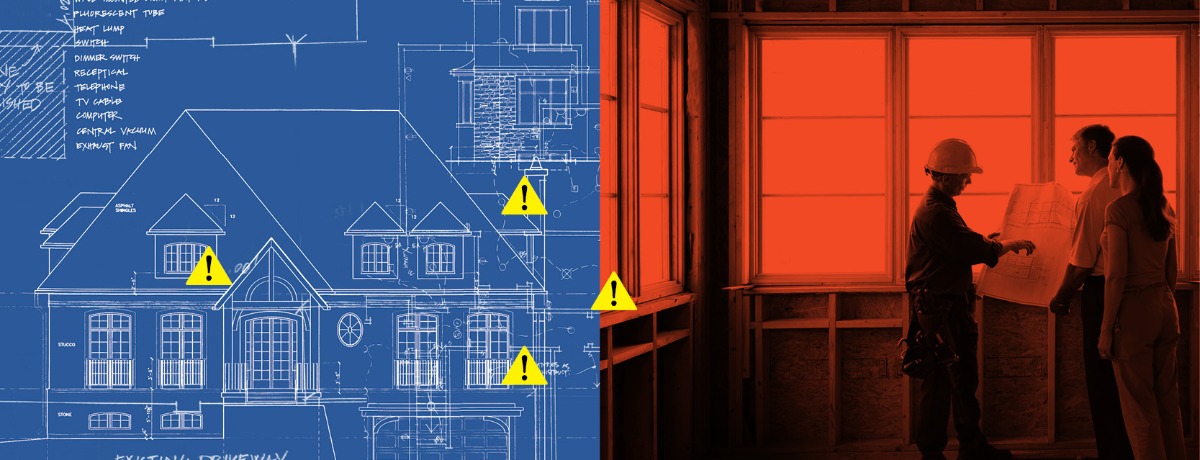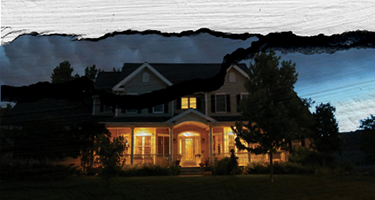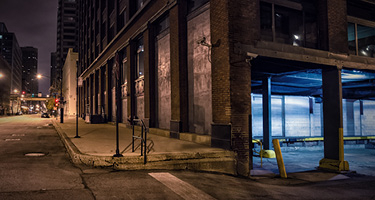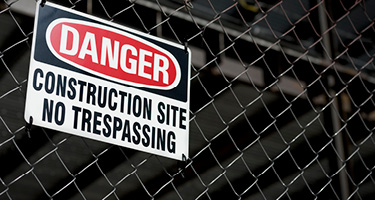Buying a home is the most important purchase most people will ever make. A house, after all, is a place to raise children, entertain friends and family, and always feel safe and secure. For one family, though—clients of ours—their dream home turned out to be nothing of the sort. The following is taken from the record in their case.
Our clients are a successful, well-educated married couple. In 2013, they bought a large house—with an eye toward the requirements of their special-needs daughter—in a suburban community. The sellers, also a married couple, had made renovations to the house which they prominently displayed in their sales literature and which were a significant factor in our clients’ decision to purchase the home.
The sellers have owned a licensed construction business for more than 40 years. They’ve also operated a successful business that acquires, renovates, and sells or leases single and multifamily properties and one commercial property. Those factors would become an important aspect of this case.
After our clients bought the house, they began renovating the second-floor bathrooms. When their contractor began taking out walls and flooring, he discovered several hidden defects: A load-bearing wall in the kitchen ceiling on the ground floor had been removed as part of the sellers’ kitchen expansion, and, in its stead, the sellers installed a non-building-code-compliant beam.
The sellers had failed to obtain building permits for the renovations, failed to have the work inspected.
The contractor soon discovered more design and construction defects in the kitchen and in an adjacent room—defects that could have caused both rooms’ ceilings to collapse without warning. Our clients also retained a structural engineer who concluded that the work in both rooms was defective, non-code-compliant, and dangerous—conclusions consistent with those reached by the town’s building inspector following his own inspection of the work.
The sellers had failed to obtain building permits for the renovations, failed to have the work inspected, and failed to obtain a certificate of occupancy from the town—none of which they disclosed to our clients during the pre-closing inspection.
Our clients contacted the sellers’ broker to request information from the sellers about the renovations and who had performed them—information the sellers refused to provide. Per their counsel’s advice, they refused to communicate with our clients.
After further unsuccessful attempts to reach out to the sellers, the buyers retained our firm. We sent a letter to the sellers containing a settlement demand of $210,000—the contractor’s repair estimate—and a demand for the disclosure of the identity of whoever had done the renovations. The sellers were required to make a reasonable settlement offer within 30 days.
The sellers’ response letter—which would end up playing a dramatic role in the consequent trial—denied liability, claimed that all the work was code-compliant and structurally sound, and failed to identify who had done the work. It also threatened our clients with a claim for damages and attorneys’ fees if our clients filed suit.
Our clients filed a lawsuit against the sellers in September 2014. The complaint contained four counts: defective construction work, fraud, breach of the implied warranty of habitability, and violations of consumer-protection law. In response, the sellers denied any liability, claimed that the statute of repose barred our clients’ claims and that because the sale was a private transaction, it was not covered by consumer-protection laws or the implied warranty of habitability.
During discovery, the sellers continued to balk at disclosing the identity of those who had done the renovations. We obtained a court order directing the sellers to disclose this information. The sellers eventually identified three individuals. During their depositions, those individuals admitted that the sellers knew they were legally required to obtain a building permit and certificate of occupancy for the work, but failed to do so. During their depositions, meanwhile, the sellers admitted that the wife had shredded most of the renovation documents.
We survived two motions for summary judgment filed by the sellers, though two of the four counts in our clients’ complaint—for fraud and defective workmanship—were dismissed by the court. The remaining two counts, for breach of the implied warranty of habitability and consumer-protection violations, survived to be decided by a jury.
There were several significant issues we needed to address at trial:
- Whether the law recognized a cause of action for breach of the implied warranty of habitability regarding the sale of a renovated home rather than the sale of a newly built one.
- Whether the sellers could avoid liability under the exculpatory provisions contained in the Purchase and Sale agreement.
- Whether the sellers had engaged in “trade or commerce” (an element of proof under the consumer-protection laws), and whether they were “builder-vendors” (an element of proof in connection with the breach of the implied warranty of habitability claim).
- Whether the renovation work was completed after the six-year statute of repose for construction-defect claims—which allegedly commences upon beneficial use and legal occupation of the renovation work—had elapsed, as the sellers also claimed.
We retained a jury consultant to help us refine our trial themes, and with jury voir dire and selection. We conducted online a mock voir dire and mock jury trial, both of which revealed our need to retool some of our themes and trial strategies.
In response to the sellers’ statute-of-repose defense, one of our pretrial motions in limine sought to preclude the sellers’ use of that defense based on the wife’s spoliation of renovation documents. We also argued that the statute of repose was inapplicable to the breach of the implied warranty of habitability claim given that the sellers never obtained an occupancy permit for the renovations. The trial judge deferred ruling on our motion until the trial was underway.
Jury selection was aided by our jury consultant, who amassed information on potential jurors and helped us retool our trial themes. Members of the jury had technical or construction backgrounds and would, we hoped, understand the technical issues presented during the trial.
During the nine-day trial, we called the sellers to the stand as part of our case-in-chief, presenting them with transcripts of their deposition testimony in which they admitted they knowingly failed to obtain a building permit and certificate of occupancy for the work. They continued to maintain that the renovations were neither defective nor structurally unsound. Photographs of the work presented to the jury provided evidence of improperly poured foundations, bowed structural members hidden behind interior walls, improperly installed electrical wiring, an untested gas line, and a missing ceiling beam. The sellers also admitted that key portions of their response letter were incorrect—an admission their counsel acknowledged during the trial.
The jury also heard the wife admit that she had shredded the renovation documents—and, while she was still on the stand, she unexpectedly revealed that she hadn’t previously disclosed the name of a fourth individual who performed some of the renovation work, a potential violation of the court’s prior disclosure order. The next morning, we presented the court with a second motion in limine seeking to bar the sellers from introducing any evidence concerning their statute-of-repose defense. The motion was allowed.
The jury heard evidence that the sellers’ ownership and use of the house advanced their business model of acquiring and renovating real estate to boost its value and leverage its equity to purchase additional real estate. For more than 40 years, the jury learned, the sellers had operated a successful business of this sort. The income they derived from what they called their “rental business” exceeded the income from their construction business.
The house was also the location for the management and record-keeping for both businesses. The jury was informed that the sellers had leveraged the equity in their rental properties to acquire the house they sold to our clients, and then leveraged the equity in that house to buy another that they rented out for several years thereafter.
The jury deliberated about two and a half hours before awarding our clients compensatory damages on the breach of the implied warranty of habitability claim, and double damages for the defendants’ willful and knowing violations of consumer-protection laws and for their “bad faith” response letter. Our clients were also awarded over $400,000 in costs and attorneys’ fees, but the court declined to award costs or fees for the jury consultant. Our clients contend that the current judgment, with accrued interest, is approximately $2.6 million. This amount is contested by the sellers, who appealed the judgment. Our clients cross-appealed the trial court’s dismissal of the fraud and defective-workmanship counts, as well as its denial of our request for jury-consultant fees and costs. Oral arguments are expected sometime this fall.
The appellate court is being asked to consider, among other things, whether the trial court applied the correct legal standards in denying the sellers’ motions for a new trial and for a directed verdict; vis, that “trade or commerce” and “builder/vendor” proof elements under consumer-protection laws and the laws governing breach of the implied warranty of habitability were not met in what the sellers alleged was only a private transaction. The court is also being asked to consider if the trial court committed reversible error in declining to award jury-consultant fees and costs.

Preventing Your Own House of Horrors
From the Publisher
The authors' clients’ discovery of latent defects in their house was neither unique nor novel. “Do-it-yourselfers” across the country renovate their homes every day. Most follow the law, while others—either ignorant of the applicable laws or knowingly skirting them—do not. Detection of unpermitted renovations by overworked municipal inspectors is often difficult, and many states lack adequate remedies for innocent homebuyers.
Occurrences like those experienced by the authors’ clients are likely to increase in the near term. In response to the COVID-19 pandemic, people are leaving their urban dwellings for the suburbs at an unprecedented rate. Many will purchase houses that have been renovated, ideally by owners who followed the law. Other, less fortunate homebuyers, though, may be required to perform costly repairs and attempt to recover such costs from their sellers. Before you purchase a house, take the time to understand the laws regarding undisclosed renovation work in your state, check the house’s records on file at the local building department, ask your seller about the house’s renovation history, and engage experienced counsel to help you navigate the laws concerning disclosure of renovation work.
*Bleak House by Charles Dickens, published in 1853, was a satirical novel about a long-running legal case that helped support a judicial-reform movement in England culminating in the enactment of legal reforms.
Peter B. McGlynn, a partner at Bernkopf Goodman LLP, is a trial attorney specializing in construction, surety, malpractice, commercial, and bankruptcy cases. Peter has tried to verdict or decision in excess of 150 cases throughout the United States representing general contractors, subcontractors, architects, engineers, lenders, sureties, and owners, among others, on a wide array of commercial, construction, surety, and bankruptcy disputes.
Robert W. Stetson, a partner with Bernkopf Goodman LLP, has significant experience in disputes involving corporations and other business organizations, construction projects, contracts, real estate, landlord-tenant, and shareholder disputes. Bob represents a variety of clients ranging from individuals to multi-national corporations in all phases of litigation including trial and appellate practice.

































